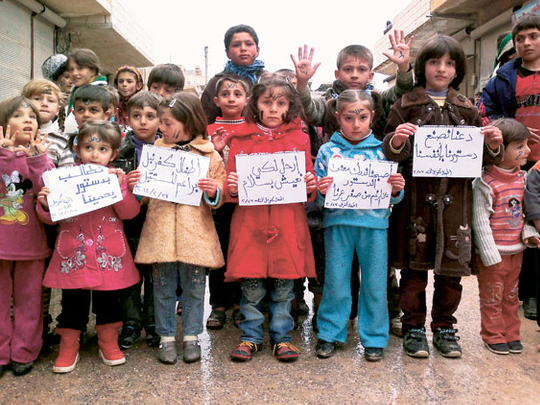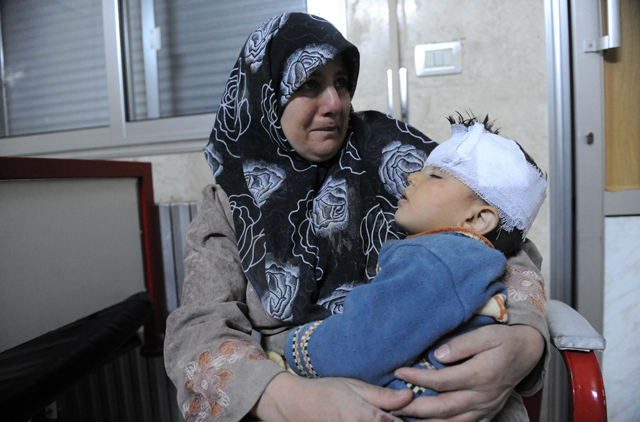
Geneva: The UN's human rights chief called on Tuesday for an immediate humanitarian cease-fire in Syria, saying the situation in the country has deteriorated rapidly in recent weeks as authorities reinforce their onslaught against the opposition.
Navi Pillay, the UN High Commissioner for Human Rights, said the international community has to take action to prevent Syrian security forces from continuing their attacks against civilians, which she said had resulted in "countless atrocities".
"There must be an immediate humanitarian ceasefire to end the fighting and bombardments," Pillay told an urgent meeting of the UN Human Rights Council.
She urged Syria to end all fighting, allow international monitors to enter the country and give unhindered access for aid agencies to enter Homs and other embattled cities.
The appeal prompted a bitter riposte from Syria's ambassador to the United Nations in Geneva, who accused the 47-nation council of promoting terrorism in his country.
Before walking out of the room, Faisal Al Hamwi said yesterday's meeting would only prolong the crisis in his country, where the United Nations estimates at least 5,400 people have been killed since March. Anti-government activists put the real figure much higher.
Tunisia offers asylum
Meanwhile, in Tunisia, President Munsif Al Marzouqi said he is ready to grant asylum to Syrian leader Bashar Al Assad as part of a negotiated settlement to the crisis. Al Marzouqi had last week called for judicial immunity for Al Assad and his family during an international conference on Syria held in Tunis.
"Tunisia is ready to grant asylum to Syrian President Bashar Al Assad and his relatives in the framework of a negotiated settlement to the Syrian crisis," he told La Presse newspaper.
Iraq PM calls for change
Iraqi Prime Minister Nouri Al Maliki on Tuesday called for "change" and "free elections" in Syria, which has been rocked by violent clashes between government forces and rebels. "Iraq backs change in Syria," Al Maliki told Saudi newspaper Aukadh in an as-yet unpublished interview, excerpts of which were released by his office in a statement.
"Change is necessary. The situation will not be stable without change." Al Maliki did not elaborate on what kind of change he wished to see, but said Syrians "must receive more freedom, and form a national unity government as a first step, and free elections should be held under Arab and UN supervision."
In Geneva, Pillay cited the report of a UN expert panel last week, which concluded that Syrian government officials were responsible for "crimes against humanity" committed by security forces against opposition members.
The crimes included shelling civilians, executing deserters and torturing detainees.













